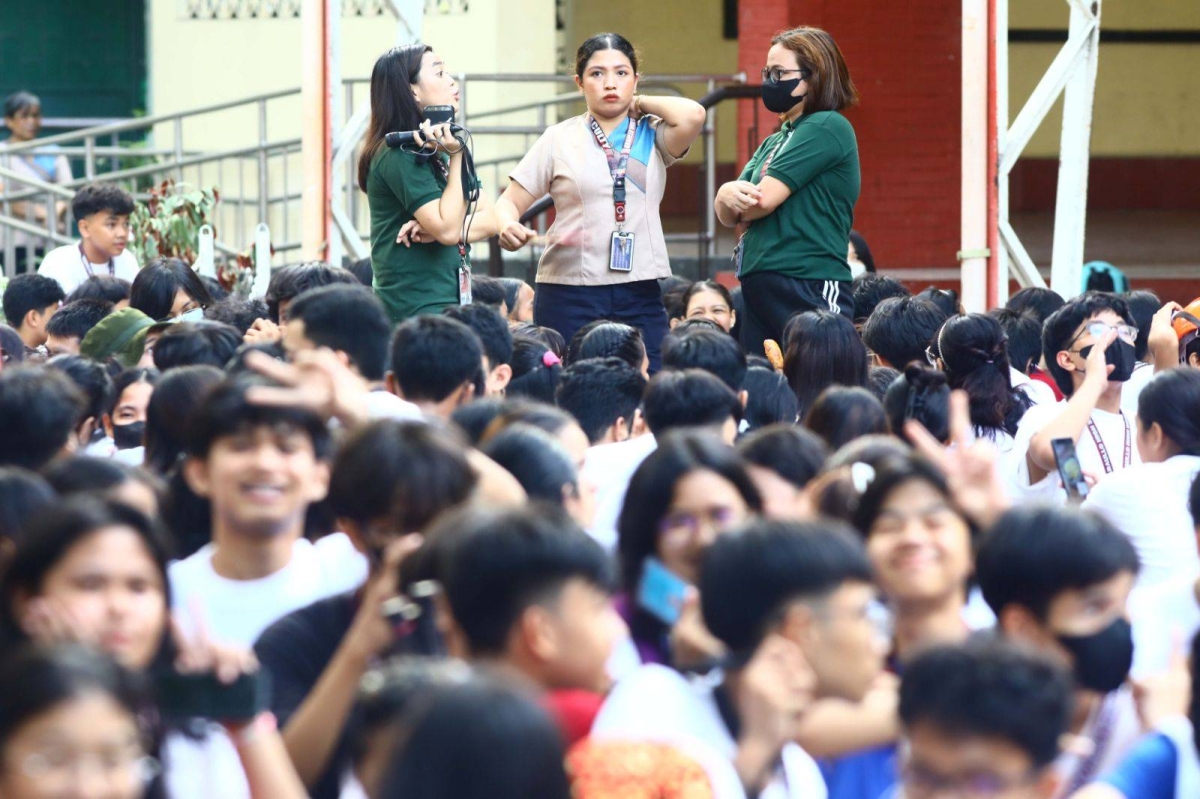The Second Congressional Commission on Education (Edcom 2) has recently urged the Department of Education (DepEd) to ensure the complete implementation of its newly released policy aimed at removing administrative tasks from public school teachers. Despite potential challenges such as a lack of non-teaching personnel and the clustering of schools, Edcom 2 emphasizes the importance of creating an environment where effective teaching and learning can thrive.
DepEd Order 2 (DO2) series of 2024, signed by Vice President and Education Secretary Sara Duterte on January 26, mandates the immediate removal of administrative tasks from public school teachers. The order also includes a 60-day transition period for Schools Division Offices (SDOs) to provide support for clustering of schools, deployment of non-teaching personnel, transfer and turnover of existing administrative tasks, and the hiring of administrative support personnel.
The Year One report from Edcom 2 revealed that teachers have expressed their frustration at being unable to fully focus on teaching their students due to the burden of over 50 ancillary and administrative tasks. To address this issue, Education Officer in Charge Wilfredo Cabral, undersecretary for Human Resource and Organizational Development, stated during a commission hearing on February 8 at the University of the Philippines-Bonifacio Global City campus that SDOs should be responsible for submitting proposals for the deployment of non-teaching personnel and clustering of schools during the transition period.
Public school teachers have welcomed the new policy, recognizing that it will allow them to allocate more time to teaching and increase their focus on their students. Julie, a teacher from Calabarzon, raised concerns about who would take over the administrative tasks. She emphasized that it would be impossible for a school head and an administrative officer to handle all the administrative tasks if they were removed from the teachers’ responsibilities.
Mimi, a principal from Calabarzon, highlighted the increased workload for administrative officers during the transition period. In the past, administrative officers were responsible for administrative tasks in only one school, but now they are expected to handle tasks for two or three schools. Many administrative officers are considering resigning due to the excessive workload.
Edcom 2 co-chairman Sen. Sherwin Gatchalian suggested that the DepEd explore partnerships with civil society organizations (CSOs) and other stakeholders to implement the directive effectively. Gatchalian believes that these partnerships can help alleviate the burden on both DepEd and teachers. He encouraged the DepEd to include this approach in their implementation plan.
Edcom 2 Executive Director Karol Mark Yee emphasized the need for an equitable allocation of personnel and resources. The Year One report highlighted “severe inequities” in the distribution of the Special Education Fund and the school maintenance and other operating expenses budget. To address this, the DepEd has allocated an initial budget of P300 million to create Administrative Officer 2 positions.
Yee also mentioned that while DO2 allows for the hiring of personnel under a contract of service or job order, which can be charged under MOOE or alternative sources of funding, the commission discovered during consultations that some schools are struggling with high electricity bills, consuming 30-70 percent of their budgets. The commission eagerly awaits the full implementation of the policy and expects further improvements to address these financial challenges.
In conclusion, the Second Congressional Commission on Education urges the DepEd to fully implement its policy on removing administrative tasks from public school teachers. Despite potential obstacles, such as a lack of non-teaching personnel and the clustering of schools, the commission emphasizes the importance of creating an environment that allows teachers to focus on effective teaching and learning. The partnership with CSOs and equitable allocation of personnel and resources will play a crucial role in the successful implementation of this policy.
Source: The Manila Times








